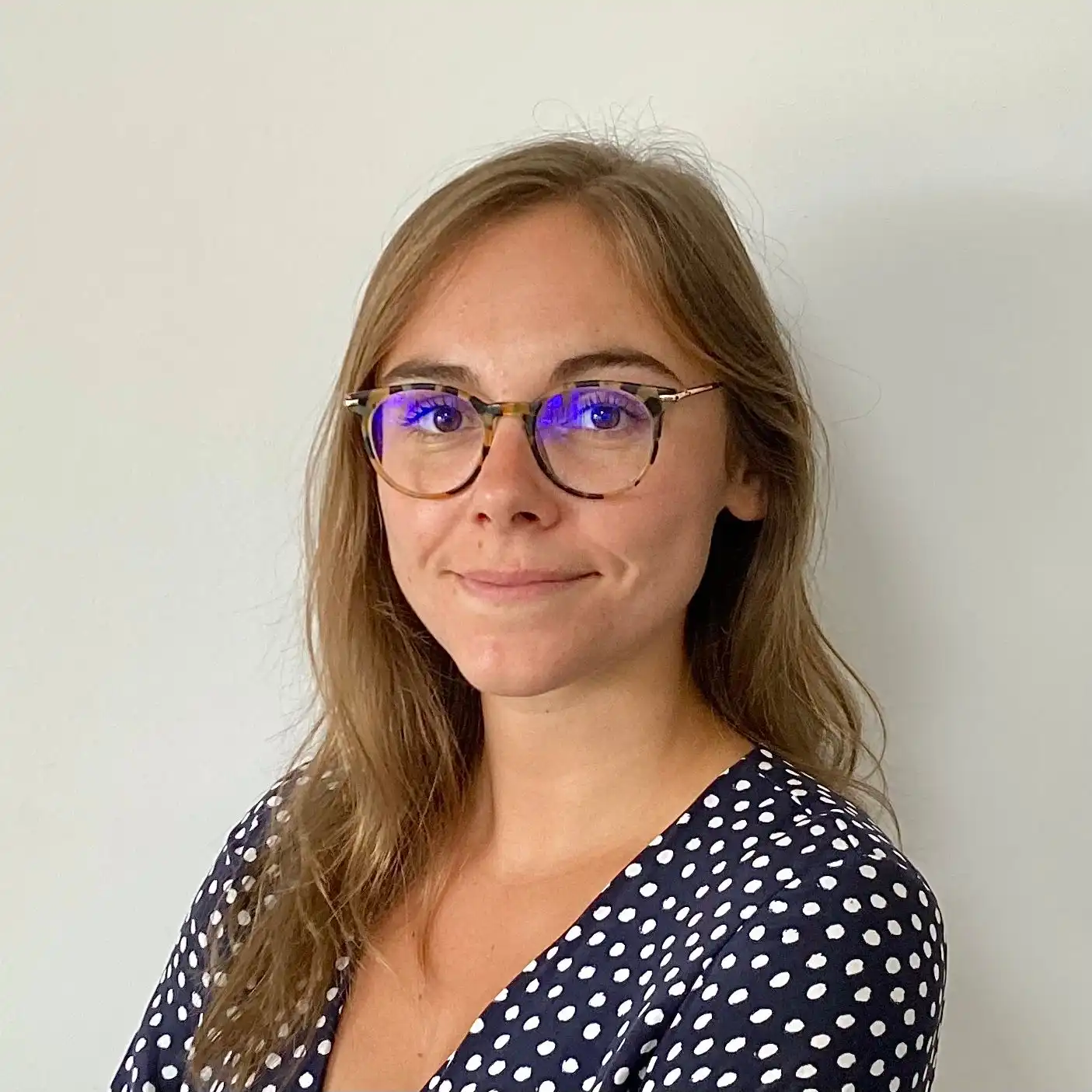Home>Vicky, Chief of Staff, German Marshall Fund of the United States (GMF)
04.10.2023
Vicky, Chief of Staff, German Marshall Fund of the United States (GMF)
Coming from France, Vicky graduated in 2022 from the Master in International Security with concentrations in African studies and Diplomacy. She did her undergraduate programme at Sciences Po on the Reims campus where she followed the Euro-American track, which allowed her to study abroad in the United States for a year at Rutgers University.
Vicky is the Chief of Staff for the head of the Geostrategy section of the German Marshall Fund of the United States think-tank (GMF).
What are your main responsibilities?
As a chief of staff, my main responsibility is to assist the head of the Geostrategy section in the strategy surrounding her work and the management of her team, as well as for day-to-day tasks. Our team is made of more than 60 experts spread across 6 offices (Washington DC, Berlin, Brussels, Warsaw, Ankara, and Paris) which means there is a lot of coordination to be done. My daily tasks include drafting geopolitical reports on hot topics, coordinating the fundraising efforts of our team, communicating with other GMF teams on ongoing projects (whether it relates to communications, finance, HR etc.), as well as representing my team and GMF in meetings with external partners.
Finally, and since I am based in the Paris office of GMF, I also assist with event planning and managing interns whenever necessary. As you can see, it is very versatile and there is absolutely no routine, which I love. I would say that the main skills needed are adaptability (you need to constantly be able to jump from one task to the other) and communication (you need to be able to speak to different people inside and outside the organization.)
How did you prepare for this job?
I started at GMF after being an intern there during my gap year (between semester 3 and 4 of my Masters). After this internship, I was offered to stay in the think-tank as a permanent employee, and the chief of staff position was offered to me after having been in the company for close to 2 years, which really helped me ease into this new (challenging!) position. I would thus say this is what really helped me prepare for my job, but back when I was looking for an internship, I would try and attend as many conferences organized by Sciences Po Carrières and PSIA Careers to learn about multiple jobs and work fields in order to understand what I was truly interested in. The internship offer had actually been posted on the Sciences Po Carrières website, so this is how I heard about the position.
What is the most fascinating part of your job?
The most fascinating part of my job is definitely analyzing ongoing geopolitical events. As someone who always loved diving into specific topics to write essays or prepare presentations during my time at Sciences Po, this part of my job takes me back to university, and allows me to always be in touch with what is happening in the world. Our research focuses on security and defense between the U.S.A. and Europe, which is completely in line with what I was studying at Sciences Po, so it really is my ideal job! I also love the communication aspect of my work, the way I am learning to speak with any type of public, and the diversity of my tasks.
How did your PSIA experience contribute to the position you hold today?
My PSIA experience obviously contributed to the position I hold today on multiple levels. The presentations we would do in class taught me to speak in front of a large audience, and to convey my message effectively. The research work we would do for essays taught me research skills which allow me to be very efficient in the workplace, and also taught me how to "own" a topic very quickly and be able to discuss it.
Finally, with most of our professors being professionals, I learned a lot about the reality of some jobs and workplaces; their experience is very valuable and allows you to get a "real" introduction to certain fields.
What advice would you give to current students?
The main advice I would give to current PSIA students would be to take advantage of all of the resources Sciences Po offers. The variety of classes allows you to get an introduction to pretty much any topic of your choice, instantly bringing you a great deal of knowledge which could also help you figure out what you want to do later on in your professional life! The resources also come in the shape of professors, and the experience they have, which really gives you interesting insights and could open doors for you. Finally, always be on the lookout for conferences, I used to attend so many that did not relate to my masters at all, but which I found so interesting! It is harder to attend similar events once you are in your professional life, so take advantage of those.
